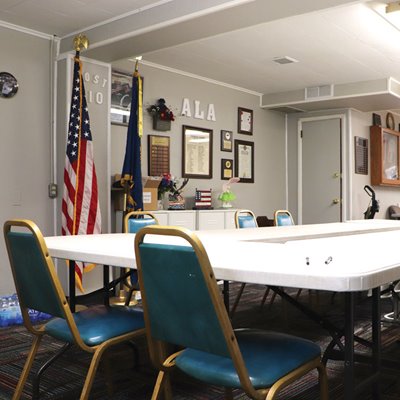 Is your unit’s post home in a historic building, historic neighborhood, or an important part of your local community? Tours can be a great way to bring members of the community together, spike interest in membership, or just give people the chance for a sneak peek inside a building they’ve always been curious about. If you are interested in coordinating a tour for your local unit or post, here are some tips to get you started.
Is your unit’s post home in a historic building, historic neighborhood, or an important part of your local community? Tours can be a great way to bring members of the community together, spike interest in membership, or just give people the chance for a sneak peek inside a building they’ve always been curious about. If you are interested in coordinating a tour for your local unit or post, here are some tips to get you started.
Establish goals
The National Trust for Historic Preservation offers several tips on being a good tour guide. If you’re planning a tour on behalf of an organization, make sure your planned activity ties back to your organization’s mission and has a clear focus. This can mean fundraising, awareness-building, or inspiring action.
Do your homework
The National Trust recommends contacting your local historical society and public library for information. Ask to see old photographs these places might have of your building or the surrounding land, historical maps, or even newspapers with specific articles that reference the history. In addition, they urge you to talk to people. This can mean talking to neighbors in the area, local business owners, and even the mailman. These people might be able to tell you more about the history and if any changes have been made over time. In the case of a unit/post home, this could also mean talking to current and past leadership, as well as your historians.
Tell a story (historical or contemporary)
Johns Hopkins, executive director of Baltimore Heritage — Baltimore’s nonprofit historic and architectural preservation organization — advises in a tip sheet on their website to have a few fun and compelling stories to tell. People are more likely to feel engaged when they are listening to a story, Hopkins advises, rather than a list of dates and names.
Tour guides at ALA National Headquarters note it is also important to be aware of organizational alphabet soup or organization acronyms when speaking. National Headquarters’ tour guides always make a point to define them for newbies when giving tours of the building in Indianapolis.
Get moving right away
According to Hopkins, tours can often get bogged down before they ever begin with tour guides doing a “big wind-up” ― welcome, introductions, providing context, etc. To help avoid this, he hints that if you have a script, the first line should tell you to “Move 30 feet up the street before you say anything.” He also advises to plan to scrap 90% of any big introduction.
Face the crowd, not what you’re talking about
Hopkins points out that many tour guides often get so wrapped up in their subject that they forget to face the people they are addressing. To help avoid this, he recommends to “deputize” somebody in the crowd to interrupt you if they can’t hear you.
Be personal
Another tip from Hopkins is that no matter how much we love buildings, it’s a fact that people connect with people. He suggests it’s good to have a few personal anecdotes ready, even if they’re just about past tours you’ve done. By doing this, he writes, you’ll build a more personal connection to your group and create a memorable tour.
ALA National Headquarters’ tour guides also recommend to let people take selfies along the way, but not to hold up the whole group for it.
Don’t worry about being perfect
People don’t expect you to be perfect, Hopkins emphasizes. He recommends to set the stage for human imperfection by acknowledging that people who may know more than you should speak up and share their knowledge with the group.
ALA National Headquarters’ tour guides recommend that if you hear something of value, be sure to capture a few details, along with the individual’s name and contact info. This will be a big help to your unit/post historians and the ALA’s recordkeeping in general.
In the spirit of Service, Not Self, the mission of the American Legion Auxiliary is to support The American Legion and to honor the sacrifice of those who serve by enhancing the lives of our veterans, military, and their families, both at home and abroad. For God and Country, we advocate for veterans, educate our citizens, mentor youth, and promote patriotism, good citizenship, peace and security.